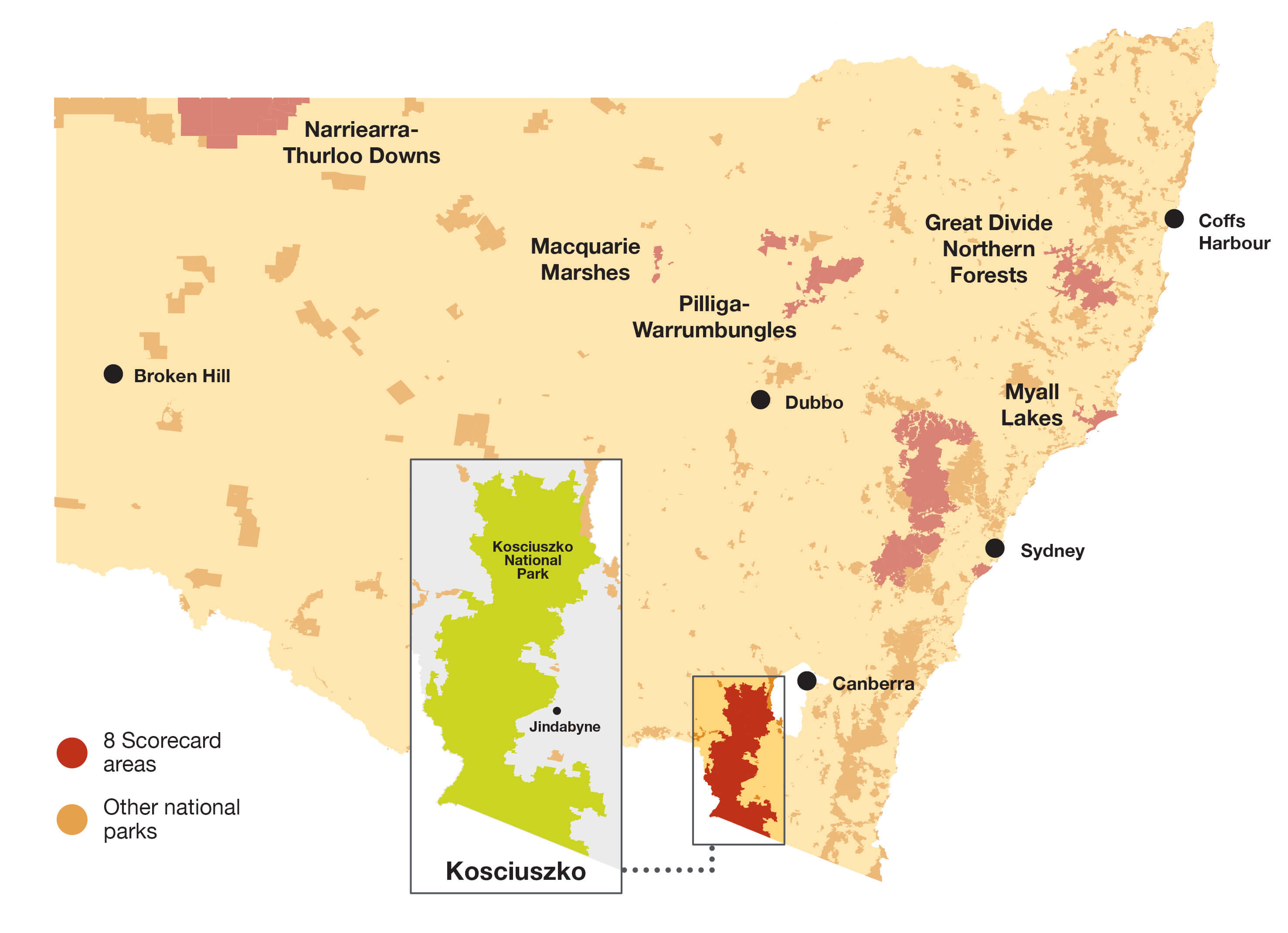The park features the highest mountain peaks on the continent and includes distinctive glacial landscapes, providing a crucial refuge for species found nowhere else.
Kosciuszko National Park has a rich Aboriginal history and local Aboriginal communities have deep cultural connections. Many non-Aboriginal people have links to the land associated with previous and present uses as a recreational destination.
The sampling effort of the Kosciuszko National Park Scorecard has been considerable, collating comprehensive survey data from 100 sites, combined with management effort, and patterns of fire over time.
The Kosciuszko National Park Scorecard has:
- recorded 155 species of native fauna, including 109 birds, 34 mammals and 12 reptiles
- detected several threatened fauna species including broad-toothed rat, smoky mouse, spotted-tailed quoll, eastern pygmy-possum, koala and 5 vulnerable microbat species
- recorded 501 native plant species and 55 weed species, across 5 main vegetation formations
- identified that more plant species occur in wet sclerophyll forests and grassy woodlands than the other vegetation formations
- recorded 12 threatened birds including gang-gang cockatoo and powerful owl, scarlet and flame robins
- revealed the vulnerable eastern pygmy-possum is widely distributed throughout the park, previous records of the species gave no indication of its broad distribution in the park
- shown that the park is a stronghold for the threatened microbat eastern false pipistrelle as it was found throughout the park.
Challenges to park health continue to include:
- feral animals such as deer, cats and foxes
- environmental weeds like ox-eye daisy, mouse-ear and orange hawkweed, sweet vernal grass and blackberry
- canopy loss in fire-sensitive tree species, such as alpine ash and snow gum are of concern due to their slow growth rate
- only 25% of fire-sensitive vegetation alpine complex remains unburnt
This Kosciuszko National Park Scorecard provides a strong platform for regular ecological health checks in the park. Future and regular ecological health checks will assist National Parks and Wildlife Service to identify emerging issues, monitor trends and dynamically adapt management to support these precious alpine ecosystems.

The Kosciuszko National Park Ecological Health Performance Scorecard site